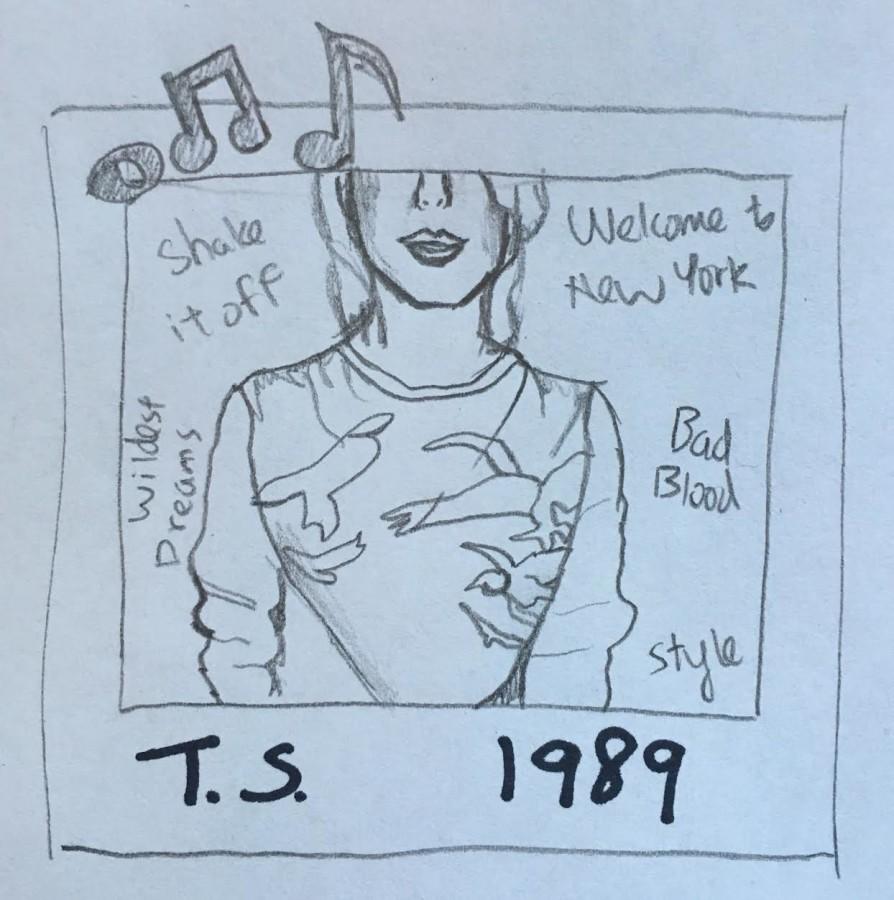From Country Chick to Sensational Songstress: How Taylor Swift’s Influence Extends Beyond the Music
November 12, 2015
Typically, when pop stars are referred to as young, blonde, and problematic (concerning the topic of breakups), Taylor Swift comes to mind.
The Pennsylvania-born artist has had a plethora of stereotypes attached to her, from being regarded as the “obsessive girlfriend” to a mentally unstable performer. While the media focuses on gossip pertaining to the starlet, they push Swift’s genuine musical ability to the side, as they do to many females in the music industry. However, at her finest, Swift composes prose with the sensitivity of an onlooker and a dramatist’s nose for conflict. From the first line of her first single, “Tim McGraw,” (2006) to the sardonic and snappy melody of her hit single “Blank Space,” (2014) Swift presents her own persona through her music: an unthinkable fusion of a coquettish demeanor and cynicism, of infatuation and vengeance.
On October 27, 2014, Swift released the album “1989,” named after her birth year. Swift is the one and only artist to have three albums sell a million copies in their first week since 1991. Before “1989”, she sold nearly 70 million digital tracks, with Billboard naming Swift “Woman of the Year” for 2014—the second time she has received the distinction in the award’s eight-year history.
Similar to the move from small-town Nashville to the bustling streets of New York City, Swift’s music has changed, now featuring the message of embracing one’s individuality rather than taking “haters” to heart. The bubbly hit single “Shake It Off” shows just how sharp-witted Swift is. She pokes fun at the media’s portrayal of her “serial dater” reputation in “Blank Space,” depicting herself in the song just as how society views her- a woman who gets “drunk on jealousy” and modifies herself for every guy she falls for. Swift proves that she is aware of the media’s gossip her, but is uninterested in “what people say;” Swift just “keeps on cruising / can’t stop, won’t stop moving.”
Other than just being a socialite, Swift is also a feminist. “I just struggle to find a woman in music who hasn’t been completely picked apart by the media, or scrutinized and criticized,” Swift comments in the Time article “The Power of Taylor Swift.” Similar to many other women, Swift believes that it’s “a really important thing that I manage my anxiety when it comes to the future, because, you know, I have very few female role models. That scares me sometimes.” Swift herself acts as a female role model to many teenagers, including those at Ridge who endeavor to find themselves through the cracks of doubt.
“I was always really insecure about myself, and struggle with my own self-esteem,” comments Andrea Zhang ‘19. “Taylor Swift’s music has allowed me to realize that to believe in others, I had to believe in myself first.”
The influence of Swift’s album also assisted many in “letting go of the past and moving on,” comments Kush Amin ‘19, an avid “Swiftie” who has felt the healing impact of Swift’s “wondrous melodies and comforting lyrics.”
Similar to a mirror, Swift reflects light on issues that people have to face in the journey through high school and beyond—self-image, double standards, and more—in “1989.” Through the power of her lyricism, she proves to all listeners that they are more than what the world tells them and that “it’s gonna be alright”.


bridget torcivia • Nov 16, 2015 at 12:59 pm
Great article! I liked how both sides of the argument were presented so the reader can chose whether Taylor Swift has a positive or negative influence on the media. I also like how the article expressed that she is a strong feminist and stands up for what she believes in! (:
rebecca kilroy • Nov 16, 2015 at 12:55 pm
I really like the defense of Swift’s reputation and how you focused on her positive feminist influence on young woman
Lily Yang • Nov 16, 2015 at 12:19 pm
I have always really loved Taylor Swift songs, from You Belong With Me to Wildest Dreams. They are not only catchy but also inspiring. I agree with the author!